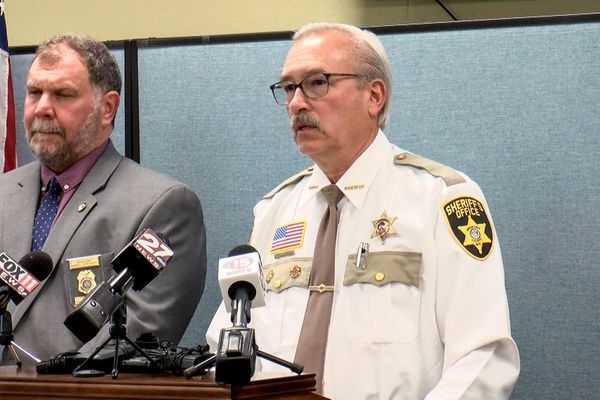
This piece is part of a series. Find the full series here.
For more than two decades, the polling and campaigning of company Crosby Textor (now rebranded as C|T Group) have powered the successes — and the odd failure — of Liberal Party campaigns around Australia.
But it all came to a shuddering halt at the federal election last year with the Morrison government’s catastrophic loss. Then NSW. Now, conservative government remains only in Tasmania.
There has been much commentary since on the manifold failures of the Morrison government. The former prime minister was deaf, dumb and blind on gender questions. The Coalition government had trashed the institutions of government and destroyed public trust. The conservatives were in the pocket of the fossil fuel industry. The Morrison government’s tie-up with the Murdoch media group was toxic for democracy.
What has been missing, though, is analysis of the Morrison government’s relationship with C|T Group.
C|T Group has been part of the furniture for so long that it is easy to assume not much has changed since its early days. Back then, its smart polling and cut-through political messaging set the standard for political campaigning in Australia.
But the group is much, much more.
Crikey’s new investigative series Crosby Textor: the ultimate insiders examines C|T Group’s evolution from early masters of smart polling and cut-through political messaging for conservative politics to the unique global business model it has become today.
As the investigation shows, the group’s influence over the Liberal party has grown exponentially — to the point where it is now impossible to know who controls who. Is C|T Group there to serve the Liberal Party and Liberal governments? Or are Liberal governments there to serve C|T Group and its vast list of corporate clients?
C|T Group’s unique business model
C|T Group’s business model is unique in the world of politics and lobbying.
C|T Group works to get conservative political parties elected to government. At the same time, the group has an extensive list of corporate and multinational clients who may seek to influence governments. C|T Group’s influence is such that it has always enjoyed open-door access to government. But why stop there? How much more valuable would it be if, as a lobbyist, you were actually part of the government?
This is the domain that the group has made its own, with former senior C|T Group officials occupying key roles in the offices of prime ministers. It is the ability to influence government from the inside that has sent C|T Group into overdrive as a profit-making juggernaut.
To do so, the firm has allied itself wholly and solely with the conservative side of politics. It has been so successful in grafting itself onto the Australian Liberal Party and the UK Tories that other lobbying firms have needed to go through C|T Group for access to the government.
The rise and rise of C|T Group
The C|T Group story really begins with a young Lynton Crosby — or Sir Lynton Crosby AO as he is known nowadays.
Crosby began his political life as a failed Liberal candidate for a seat in the South Australian Parliament in 1982. But little else has misfired in Crosby’s unstoppable rise.
Crosby is a Liberal Party lifer. He joined the Young Liberals in 1975 while completing his studies in economics at Adelaide University. Crosby’s first job out of university was as a market analyst with Golden Fleece Petroleum (later known as Caltex Australia). He then worked in corporate affairs for the South Australian oil and gas giant Santos.
Having been enmeshed in fossil fuel politics, Crosby became director of the federal Liberal Party in 1997 where he remained until 2002. An ultra-conservative, he oversaw the Liberal campaigns for the 1996, 1998, 2001 and 2004 federal elections.
From 2002 on, Crosby teamed up with Mark Textor, a polling specialist from the Northern Territory, to create the Crosby Textor group. “Tex”, as he is known, was already hailed as a campaign guru for his work producing law and order messaging for the NT’s governing Country Liberal Party. For the Labor Party, though, he was public enemy number one for his use of focus group polling data to drive hardline political messaging.
Under parliamentary privilege, the ALP accused him in the late 1990s of using research methodology “designed to identify, exploit and inflame division for the benefit of his political clientele”.
From local polling outfit to global expansion
Since the mid-2000s, the group’s operations have expanded dramatically. It has offices in the financial and political power centres of London, Washington, Dubai, Hong Kong and Mumbai.
As Crikey reports, it has most recently teamed up with the former spy chiefs of France and Germany to create a specialist intelligence network for its clients.
Along the way the group has collected a small group of pliable prime ministers — and client governments — in Australia and the UK.
It has done it all by creating a unique, seamless weave of conservative politics and corporate interests, backed by large amounts of money and the ability to campaign ceaselessly.
We begin this special Crikey investigation in Washington, where C|T Group’s clients include giant US defence company General Dynamics, whose subsidiary, Electric Boat, is the lead contractor for the US Navy’s fleet of nuclear-powered submarines — and a key player in the AUKUS agreement hatched under former prime minister Scott Morrison.
If you have information you wish to pass on about this story, please email David Hardaker at dhardaker@protonmail.com







